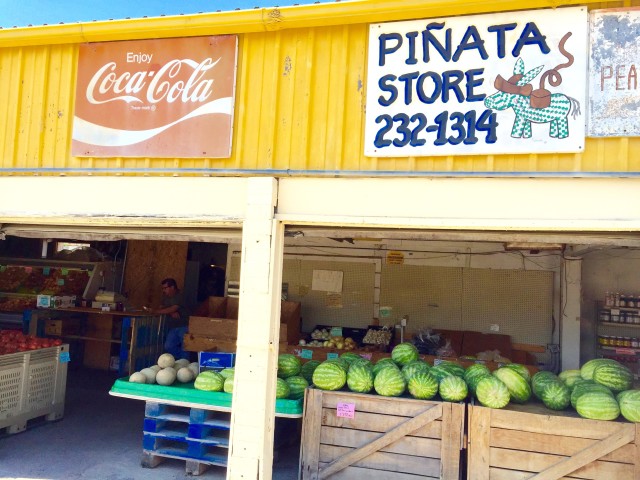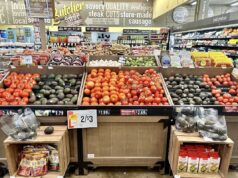
I awoke one morning this August to a story about three stalks of asparagus submerged in water. The Internet is a horrible mistress to find in one’s bed.
The controversy, though, intrigued me: America’s foremost posh grocer, Whole Foods, was being media-shamed for selling “asparagus water” at $6 per 16-ounce bottle.
Mariam Walkim, a writer for Los Angeles magazine, ignited the firestorm with an Instagram post showing the $6 water. “Somewhere in Los Angeles, Whole Food executives are laughing at us,” the post read beneath a photo of asparagus stalks submerged in bottled water.
Back in Oklahoma City, I laughed at the concept of $6 asparagus water, which Whole Foods later removed from stores, claiming it was “made incorrectly.”
The only time I go to Whole Foods is to dine from their prepared-food bar or to buy my mom fancy tropical plants. No offense to any Whole Foods employees or patrons, but the company has been fined in New York for mislabeling the weights of packaged foodstuffs and fined in California for similar unethical practices. In addition, the company’s CEO has a keen ability to make me roll my eyes.
But criticizing Whole Foods is a job for another writer, and Google shows the Internet is chock-full of them.
Instead, the asparagus-water headlines made me think about a different kind of grocer — a local business that sells fresh fruits and vegetables for incredibly reasonable prices: Piñata Store, at 311 S. Klein Ave.
Only two days before asparagus water flooded the Internet, I had made my first visit to Piñata Store in search of, you guessed it, a pinata. Ironically, I learned, they do not sell pinatas.
Instead, the small shop has been selling produce locally since 1999, according to owner Cristobal Sierra.
Spending about $22 in preparation for a party, I purchased two bunches of bananas, half-a-dozen mandarin oranges, half-a-dozen limes, four peaches, a sack of apricots, a large papaya, two bundles of shallots and two bags of grapes. The grapes stayed fresh for almost three weeks, and the fruit as a whole was far superior to what I normally buy in full grocery stores.
Piñata Store sits smack in the middle of the Farmer’s Public Market just southwest of downtown Oklahoma City, about 60 feet from the patio of the Powerhouse, a bar and restaurant that opened in early 2015. Across the street sits Urban Agrarian, a local retailer and distributor that features a variety of products from an impressive list of farms and producers across Oklahoma. Urban Agrarian is easily one of the best sources for local food in the state.
I returned to Piñata Store weeks later to interview Sierra, the store’s proprietor who moved to Oklahoma on the night he bought the shop some 16 years ago. He is soft-spoken and humble about his business.
“We try to keep things fresh,” he said, an understatement that marked all I could convince him to say for the quality of his fruit and vegetables.
“Different things every season of the year,” he added quaintly.
Having tasted and savored some of Piñata Store’s fruit, I asked Sierra to compare his produce and prices to those offered by chain grocers.
“No, no,” he said. “I’m not going to to do that.”
Sierra works at his Piñata Store from 8:30 a.m. to 6 p.m. seven days a week and buys his products from wholesalers. Eggs and other items are usually farmed locally, while different fruits and vegetables will come from Oklahoma, California, Texas, Arizona, Mexico and other places.
“I’ll tell the truth about where things come from,” he said. “It’s my home. My second home. Just a small family business.”
A small family business, indeed. One that sells $0.20 onion bundles instead of $6 asparagus water.
Just don’t go there looking for pinatas.





















